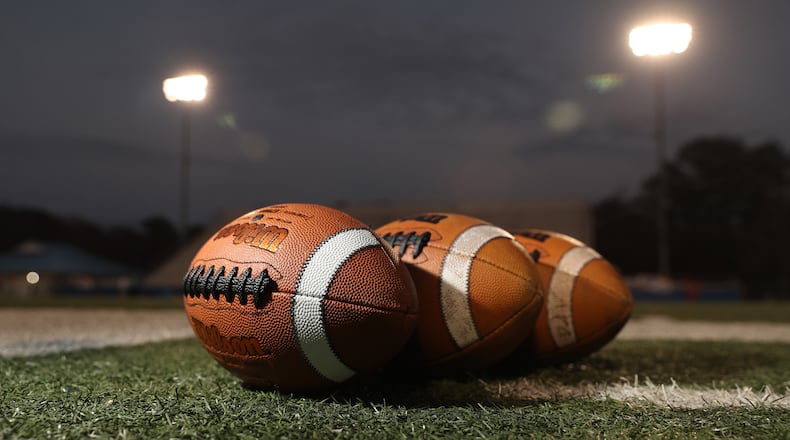Today’s interviewee is Ahmand Tinker, the executive director of the Minority Coaches Association of Georgia and the principal of Maggie Brown Middle School in Newnan. Tinker has coached high school football in Georgia for more than 20 years with stops at Kendrick, LaGrange, Carver of Columbus, Spalding and East Coweta, among others. He holds Zoom sessions each Friday titled Social Justice and Equity. Former guest speakers have included Penn State football coach James Franklin, Oregon football coach Mario Cristobal, Atlanta Hawks coach Lloyd Pierce and Cal-Berkeley running backs coach Aristotle Thompson. The next session is Friday at 2 p.m. “All coaches and individuals who want to be a part of the solution are eligible to attend,” Tinker says. He can be reached by direct message on Twitter at @artink67.
Ahmand Tinker, Minority Coaches Association of Georgia executive director
1. What some things that you and the MCAofGA have been doing to educate and support coaches on social justice? “We have been educating coaches unofficially on social-justice and equity issues in society and athletics even before establishing the association in 2010. Social justice and equity is not a new issue in the African-American community or coaching fraternity. The problems have come to light now because of cell phones and social media in society. The MCAofGA has educated coaches and student-athletes officially on Zoom sessions starting on June 1 after the George Floyd incident. Also, I’ve personally spoken to several groups across the state and country about these issues and possible solutions. As a current principal, my staff and I have weekly discussions with other educators about social-justice and equity issues. We are currently in week five, and we had guests from all around the country to provide valuable insights and opinions on how we can close the equity gap as a whole for our students and community.”
2. What advice would you have for coaches in talking about some of the social-justice issues that are going on in the country today? “It is essential for them to listen to their players instead of doing all the talking at this point. Coaches need to use their empathetic listening skills over their dismissive skills. Players have an opinion that must be heard during this social unrest. Also, coaches must understand that two pandemics are going on. They must not just focus on the COVID-19 pandemic and forget about the social justice and equity pandemic. The critical conversation is needed for all players to be involved weekly, including all players and not just their African-American players. Finally, coaches must have sessions to discuss real-world issues that the African-American communities face.”
3. What are some of most common questions or concerns raised in your sessions and in talking with people in the community about social justice and equity? “I’ve had the opportunity to speak with coaches from all across the country who are African-American, Hispanic and Caucasian on social-justice and equity issues. All these coaches vary in opinions on how to approach the problems. It is super crucial for coaches to talk about it with their athletes regardless of their race because we can help change these athletes’ mindset with proper laser-focused guidance. Caucasian coaches cannot put social justice and equity on the backs of their African-American assistant coaches. They already understand these issues because they live it daily. Caucasian coaches must lead the charge and show players that they want to be part of the change that must occur. Finally, as educators and coaches, we have an opportunity to build men and women who can help the world become a better place for everyone regardless of their skin color.”
4. What would you advise coaches whose players might want to make a political statement on social justice such as taking a knee during the national anthem or wearing a Black Lives Matter T-shirt? “Coaches have to be smart to pick and choose their battles regarding athletes’ freedoms based on their feelings and rights established by the Constitution. Some coaches have no clue how these athletes feel, so if their athletes choose to participate in a peaceful protest, they deserve that opportunity to help change social injustices and equity issues in society. Everyone in some local communities may not accept this peaceful freedom of expression, but we all have a right to express ourselves, which truly equals equality.”
Produced by Georgia High School Football Daily, a free e-mail newsletter. To join the mailing list, click here.
About the Author
The Latest
Featured

